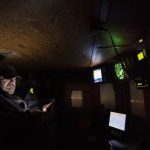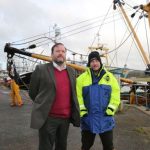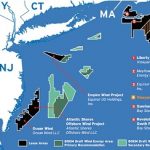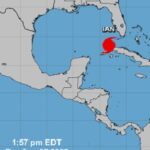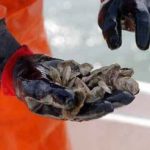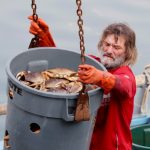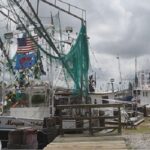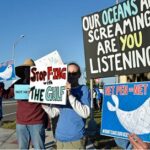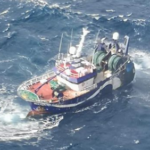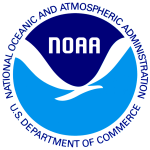Daily Archives: November 21, 2016
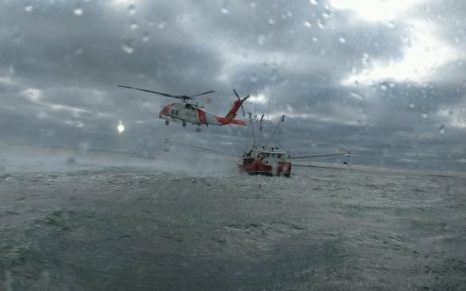
North Carolina scallop vessel may have struck an object
One day after a North Carolina-based scalloper nearly sank in Buzzards Bay, the boat was in safe hands at Fairhaven Shipyard and the Coast Guard was continuing its investigation. The 72-foot Captain Jeff began taking on water shortly after 9:30 a.m., Sunday, about 5 miles from shore near Great Ledge in Buzzards Bay. Six people were rescued in a team effort between the Coast Guard and a local marine response group. They were brought to Fairhaven’s Pease Park Boat Ramp by Towboat US, and the scalloper was eventually towed into New Bedford Harbor. Coast Guard Petty Officer Nicole Groll said the incident is still under investigation, and no official cause had been determined as of Monday afternoon. Responders to scene said the boat may have struck an object near Great Ledge, causing a leak in the boat’s bow area that was large enough to take in more water than pumps could remove. Read the rest here 20:17
Under a full compliment of resources, lobster fisherman are optimistic for repeat of last season
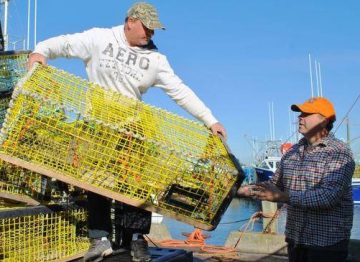 Wharves all along the south shore are piled high with lobster fishing gear and boats are at the ready for dumping day and the start of the commercial lobster fishery on Monday, Nov. 28 in Lobster Fishing Areas (LFA) 33 and 34. As always, Mother Nature has the final call when the season starts. If it’s fair winds and seas, boats in LFA 34 will leave the wharves at 6 a.m. and in LFA 33, at 7 a.m. A full compliment of resources will be on standby on the water and in the air for the season start, said Sean Arbour, search and recue coordinator at the Joint Rescue Coordination Centre (JRCC) in Halifax. “The three lifeboat stations at West Port, Clark’s Harbour and Sambro will have the cutters on the water in position about 20 to 30 miles out on stand-by,” said Arbour. “Offshore we will have two large vessels on-site tasked to search and rescue. Typically, one is stationed off Yarmouth and the other one stationed off Liverpool about two hours off.” Read the rest here 18:20
Wharves all along the south shore are piled high with lobster fishing gear and boats are at the ready for dumping day and the start of the commercial lobster fishery on Monday, Nov. 28 in Lobster Fishing Areas (LFA) 33 and 34. As always, Mother Nature has the final call when the season starts. If it’s fair winds and seas, boats in LFA 34 will leave the wharves at 6 a.m. and in LFA 33, at 7 a.m. A full compliment of resources will be on standby on the water and in the air for the season start, said Sean Arbour, search and recue coordinator at the Joint Rescue Coordination Centre (JRCC) in Halifax. “The three lifeboat stations at West Port, Clark’s Harbour and Sambro will have the cutters on the water in position about 20 to 30 miles out on stand-by,” said Arbour. “Offshore we will have two large vessels on-site tasked to search and rescue. Typically, one is stationed off Yarmouth and the other one stationed off Liverpool about two hours off.” Read the rest here 18:20
British Columbia: Dead humpback found entangled in fish farm anchoring equipment
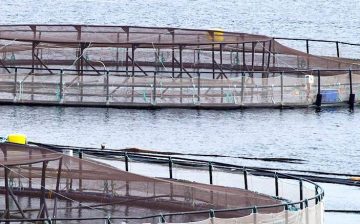 A dead humpback whale has been found stuck in equipment at an empty fish farm on B.C.’s central coast. Marine Harvest Canada says in a news release that the whale was found on Nov. 15 entangled in an anchor support line at a site in Sheep Passage. The company says staff and contractors were in the process of dismantling the site’s anchoring system after another whale got entangled in the equipment in September. The previous whale was safely released, and the entire site is now dismantled. The federal fisheries department has been notified about the dead humpback and will be investigating the incident. Marine Harvest Canada says before the incident in September, nothing like this had ever occurred in their 30 years of operation, and engineers are now testing all their sites to prevent this from happening again. link 16:46
A dead humpback whale has been found stuck in equipment at an empty fish farm on B.C.’s central coast. Marine Harvest Canada says in a news release that the whale was found on Nov. 15 entangled in an anchor support line at a site in Sheep Passage. The company says staff and contractors were in the process of dismantling the site’s anchoring system after another whale got entangled in the equipment in September. The previous whale was safely released, and the entire site is now dismantled. The federal fisheries department has been notified about the dead humpback and will be investigating the incident. Marine Harvest Canada says before the incident in September, nothing like this had ever occurred in their 30 years of operation, and engineers are now testing all their sites to prevent this from happening again. link 16:46
Backyard & Beyond: War against foreign marine species seems to be a losing battle
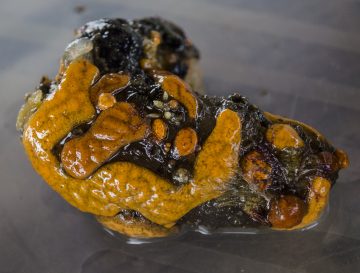 On a cool Friday morning last month, a dozen curious Rhode Islanders lay down on the pier at Point Judith Marina to collect some of the squishy and crunchy creatures that were growing on the side of the docks. Using rusted metal spatulas, they scraped the unknown life into small aquarium nets and saved it in plastic tubs, then spent half an hour trying to identify what they had retrieved. With the exception of a few blue mussels, almost nothing was recognizable. There were sea squirts and shrimp-like things, seaweeds and green crabs, and just about everything was covered in a mushy yellow-brown mat called a colonial tunicate. Almost none of it was native to New England waters. In fact, most it came from the other side of the planet. Marine invasive species are a growing problem. Once a new species arrives, it’s almost impossible to get rid of it. Read the rest here 14:28
On a cool Friday morning last month, a dozen curious Rhode Islanders lay down on the pier at Point Judith Marina to collect some of the squishy and crunchy creatures that were growing on the side of the docks. Using rusted metal spatulas, they scraped the unknown life into small aquarium nets and saved it in plastic tubs, then spent half an hour trying to identify what they had retrieved. With the exception of a few blue mussels, almost nothing was recognizable. There were sea squirts and shrimp-like things, seaweeds and green crabs, and just about everything was covered in a mushy yellow-brown mat called a colonial tunicate. Almost none of it was native to New England waters. In fact, most it came from the other side of the planet. Marine invasive species are a growing problem. Once a new species arrives, it’s almost impossible to get rid of it. Read the rest here 14:28
Lobster industry supports emergency closures along Kaikoura coastline
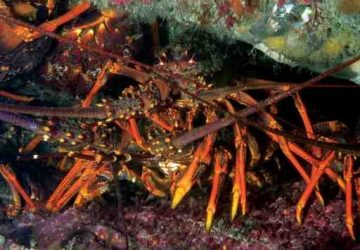 The NZ Rock Lobster Industry Council and the Canterbury Marlborough Rock Lobster Industry Association have added support to the declaration of an emergency temporary closure to lobster fishing along the South Island coast from Cape Campbell to the Conway River. ‘Fine scale data collection over the next few weeks should provide an assurance that the lobster fishery will be resilient to the after effects of the earthquake’, said NZ RLIC Chief Executive Officer, Daryl Sykes. ‘There is an extensive inventory and long time series of rock lobster fisheries data collected by industry participants and independent observers, and it should not take too long to reference current lobster abundance and distribution against the historical record. The fleet of vessels still has approximately 70 tonnes of catch to land in the current season which ends in March 2017. Read the rest here 13:23
The NZ Rock Lobster Industry Council and the Canterbury Marlborough Rock Lobster Industry Association have added support to the declaration of an emergency temporary closure to lobster fishing along the South Island coast from Cape Campbell to the Conway River. ‘Fine scale data collection over the next few weeks should provide an assurance that the lobster fishery will be resilient to the after effects of the earthquake’, said NZ RLIC Chief Executive Officer, Daryl Sykes. ‘There is an extensive inventory and long time series of rock lobster fisheries data collected by industry participants and independent observers, and it should not take too long to reference current lobster abundance and distribution against the historical record. The fleet of vessels still has approximately 70 tonnes of catch to land in the current season which ends in March 2017. Read the rest here 13:23
United Fishermen of Alaska home in on salmon habitat issues
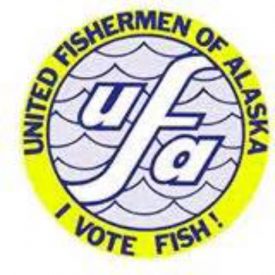 United Fishermen of Alaska is beginning to get an idea of what its new Salmon Habitat Information Program – or SHIP – will look like. The program is aimed at engaging commercial fisherman around the state in salmon habitat issues. UFA, which represents 35 Alaska commercial fishing organizations, conducted a survey this summer to understand what fishermen cared about. SHIP Director Lindsey Bloom said they were asked to list their priorities. “Fisherman, while they’re concerned about a variety of issues, mining, climate change and pollution scored the highest,” said Bloom. “At a local level, people mentioned the proposed [Bristol Bay] Pebble Mine and mining development in the transboundary region as the most mentioned specific concerns.” Fishermen’s worries about mining reaffirmed UFA’s previous advocacy for State Department involvement in transboundary mining. Read the rest here 11:19
United Fishermen of Alaska is beginning to get an idea of what its new Salmon Habitat Information Program – or SHIP – will look like. The program is aimed at engaging commercial fisherman around the state in salmon habitat issues. UFA, which represents 35 Alaska commercial fishing organizations, conducted a survey this summer to understand what fishermen cared about. SHIP Director Lindsey Bloom said they were asked to list their priorities. “Fisherman, while they’re concerned about a variety of issues, mining, climate change and pollution scored the highest,” said Bloom. “At a local level, people mentioned the proposed [Bristol Bay] Pebble Mine and mining development in the transboundary region as the most mentioned specific concerns.” Fishermen’s worries about mining reaffirmed UFA’s previous advocacy for State Department involvement in transboundary mining. Read the rest here 11:19
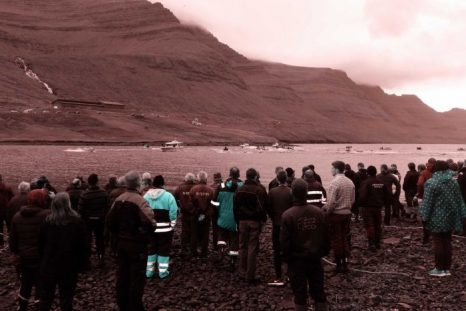
The Grind: Faroe Islands divided over whaling tradition
Residents of the Volcanic archipelago, located in the North Atlantic Ocean between Scotland and Iceland, call the hunt the Grind (pronounced to rhyme with “wind”). When the call is given, flotillas of boats set sail, herding pods of whales onto the beaches, where villagers wade through the water to kill them with lances. Yet whale meat has always been a staple of the Faroese diet: locals have historically consumed the meat and blubber to sustain themselves over the harsh winter months. Jens Mortan Rasmussen, one such whaler, believes that pilot whale is still an important and sustainable food source for the islands. “Everything you see at the supermarket is imported,” he said. “The meat that we eat at the supermarket, we barely know where that comes from. I need to kill about 2000 chickens for the life of one whale. “If you feel that you can eat a chicken and then say I can’t kill a whale, you’re a total hypocrite. Read the story here 11:07
Queensland Government slammed over permanent scallop closure
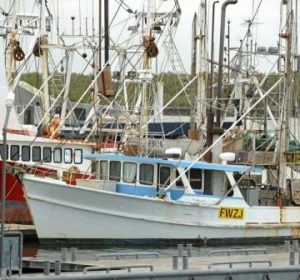 Bundaberg commercial fishers have labelled the State Government’s intention to permanently close scallop replenishment areas as “idiotic”, accusing them of using dodgy, out of date data to threaten livelihoods. On Friday, Fisheries Minister Bill Byrne said Fisheries Queensland officers would hold urgent meetings with commercial operators to outline changes to management to protect the sustainability of scallops, which had plummeted to crisis levels. But Bundaberg trawler owner Andrew Redfearn said the intended permanent closure of the SRAs was another under-handed resource grab from fishermen under the guise of fisheries management for which there was no compensation. “I seriously question the credentials, capability and political persuasion of the person who suggested the permanent closure of the SRAs and also question the same of the other managers that support this idiotic measure.” Mr Redfearn said the government was basing the current 6% of biomass on 1977 catches. Read the story here 09:21
Bundaberg commercial fishers have labelled the State Government’s intention to permanently close scallop replenishment areas as “idiotic”, accusing them of using dodgy, out of date data to threaten livelihoods. On Friday, Fisheries Minister Bill Byrne said Fisheries Queensland officers would hold urgent meetings with commercial operators to outline changes to management to protect the sustainability of scallops, which had plummeted to crisis levels. But Bundaberg trawler owner Andrew Redfearn said the intended permanent closure of the SRAs was another under-handed resource grab from fishermen under the guise of fisheries management for which there was no compensation. “I seriously question the credentials, capability and political persuasion of the person who suggested the permanent closure of the SRAs and also question the same of the other managers that support this idiotic measure.” Mr Redfearn said the government was basing the current 6% of biomass on 1977 catches. Read the story here 09:21
Gloucester Fisheries Commission opposes limited access to the historically open-access whiting fishery
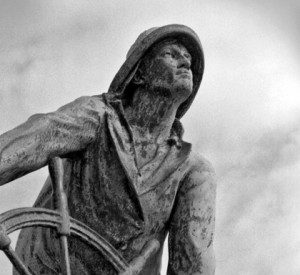 A mere two days after the NEFMC received its first look at the proposals being generated by its whiting advisory panel and whiting committee, Gloucester commission members raised concerns over the impact the proposals could have on the city’s whiting fleet — particularly the small boats. “We should not allow any other species to go under limited access,” said commission member Angela Sanfilippo, also the president of the Gloucester Fishermen’s Wives Association. “This is a healthy stock and I am totally against limited access.” Sanfilippo’s views were echoed by member Joe Orlando and Chairman Mark Ring. The three proposals to potentially limit access to the fishery are contained in currently being developed by the council. The council’s whiting committee hopes to furnish a more finished product at the council’s next meeting in late January. The city fisheries commission, however, wasn’t waiting around for the council staff’s final analysis. It voted 6-0 to oppose any attempts to limit access to Ipswich Bay for the local whiting fleet. Read the story here 08:49
A mere two days after the NEFMC received its first look at the proposals being generated by its whiting advisory panel and whiting committee, Gloucester commission members raised concerns over the impact the proposals could have on the city’s whiting fleet — particularly the small boats. “We should not allow any other species to go under limited access,” said commission member Angela Sanfilippo, also the president of the Gloucester Fishermen’s Wives Association. “This is a healthy stock and I am totally against limited access.” Sanfilippo’s views were echoed by member Joe Orlando and Chairman Mark Ring. The three proposals to potentially limit access to the fishery are contained in currently being developed by the council. The council’s whiting committee hopes to furnish a more finished product at the council’s next meeting in late January. The city fisheries commission, however, wasn’t waiting around for the council staff’s final analysis. It voted 6-0 to oppose any attempts to limit access to Ipswich Bay for the local whiting fleet. Read the story here 08:49

































